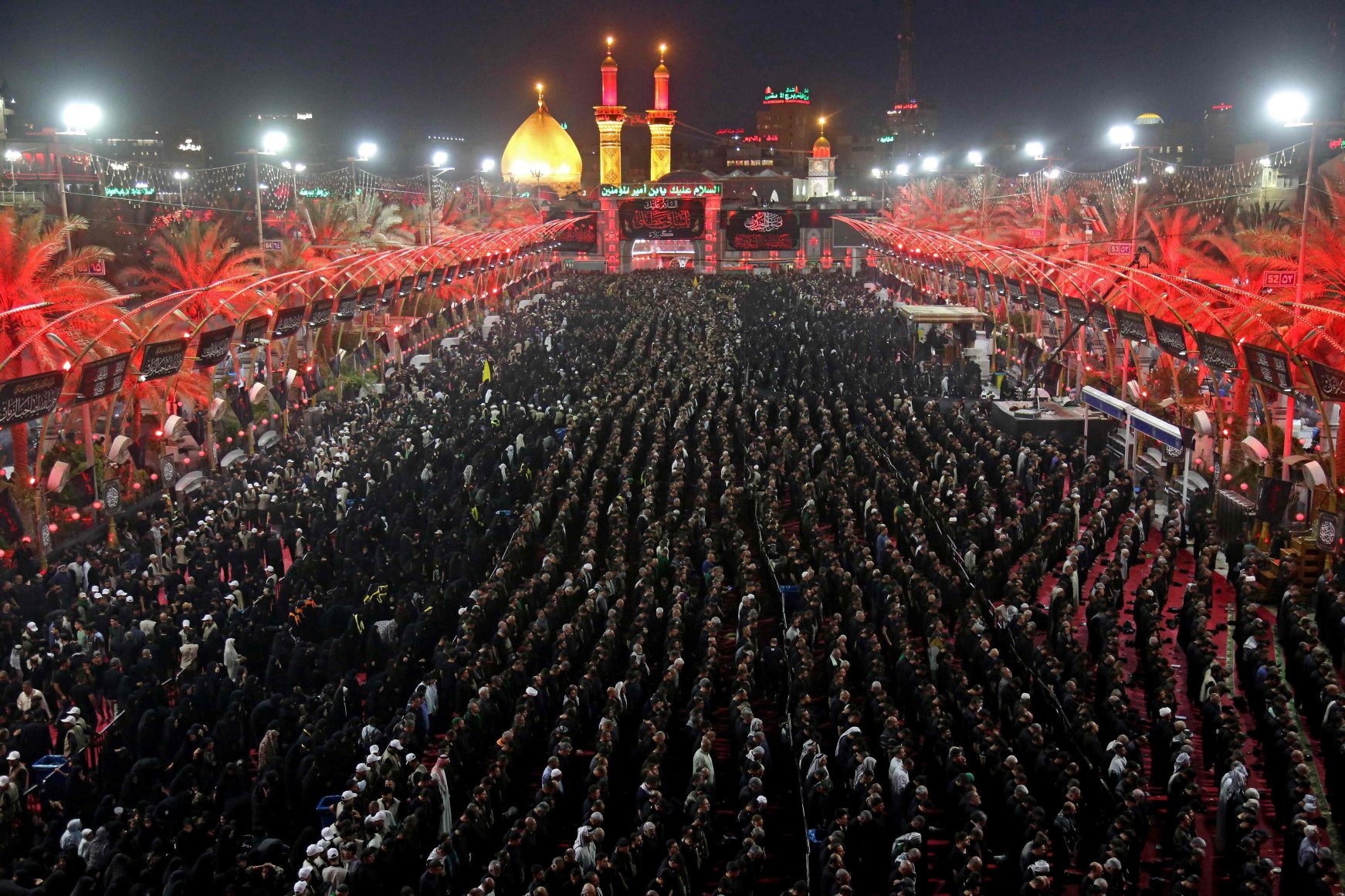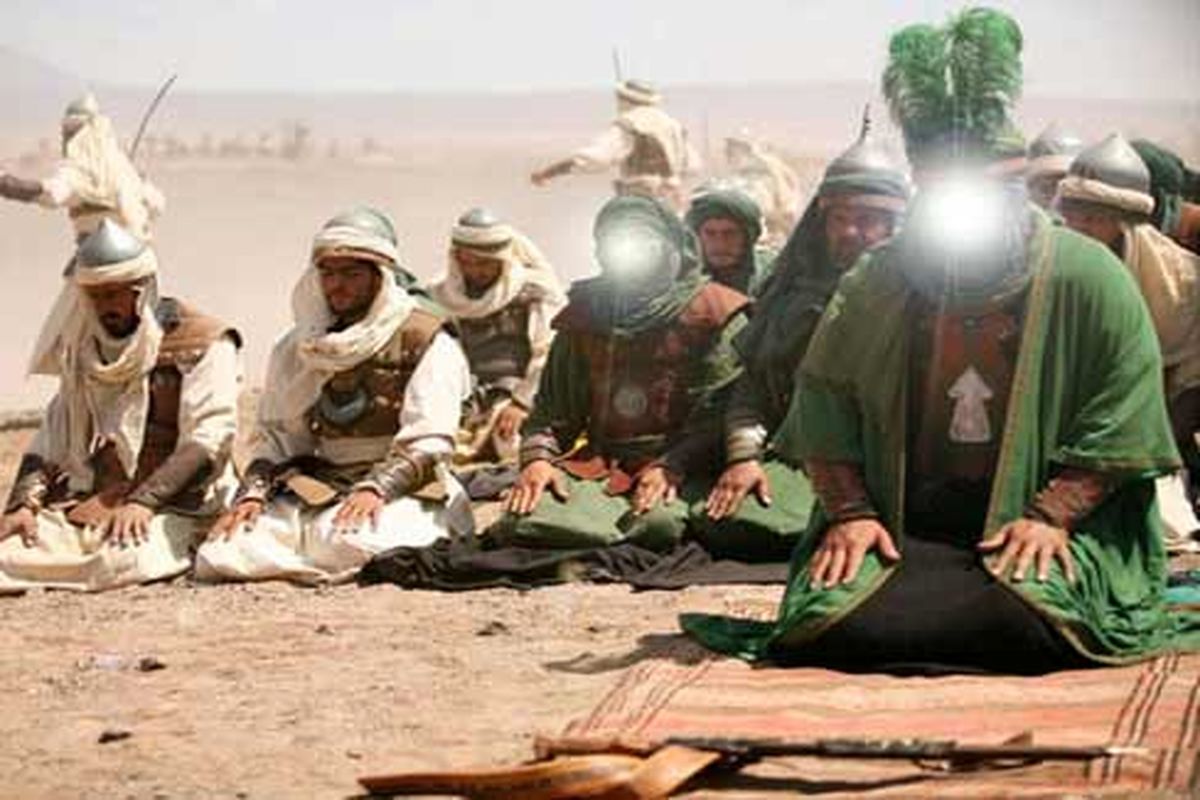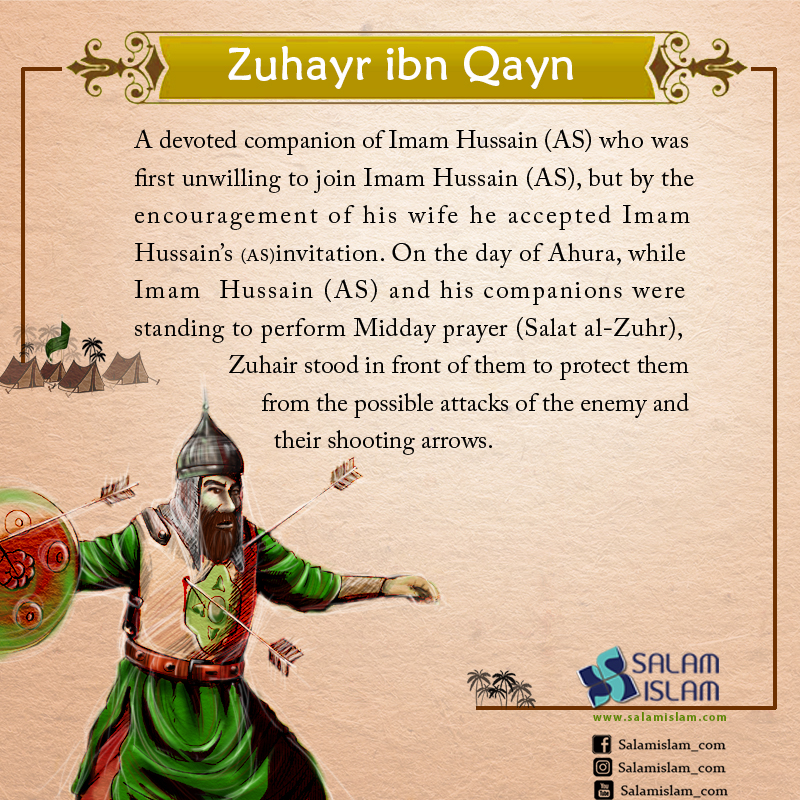

The Best Way to Commemorate the Martyrdom of Imam Hussain (AS)
The mourning tradition of Imam Hussein (AS) is one of the important and effective traditions that has undergone changes throughout history. These days, we see many ceremonies held by different people in various places around the world, in which the fundamental ethics that were the reason for Imam Hussain’s (AS) movement are being neglected. Therefore, it is of utmost importance to take a deep look at how we commemorate the martyrdom of the Imam and identify our mistakes and amend them.
One of the best ways to achieve authentic methods of commemorating Imam Hussain’s (AS) martyrdom, away from superstitions and distortions of this important tradition, is to study history. In this article, an attempt has been made to outline the manner in which the tradition of mourning for Imam Hussain (AS) was held by the Imam’s progeny (AS) and the goals that those nobles pursued in doing so.
The first commemoration ceremonies
The tradition of commemorating and mourning for Imam Hussain (AS) started from the very day of Ashura when Imam Hussain (AS) was martyred alongside his companions and sons. The first group to begin mourning were the household of the Imam and his companions. As they were taken captive and moved from city to city, they narrated the events of Karbala to people if towns and cities, and the first mourning started from then.
After the household of the Imam returned to Medina, they never stopped narrating the tragedy of Karbala and the oppression of Yazid’s Army and the reason why Imam Hussain (AS) did not compromise with Yazid. The household of the Imam, especially his sister, Lady Zainab, and His Son Ali (AS), were the first ones to hold commemoration ceremonies and people used to go to their houses to offer their condolences. [1]
What is the importance of commemorating the martyrdom of Imam Hussain (AS)?
There are numerous narrations recommending us to commemorate and mourn Imam Hussain’s (AS) martyrdom. However, it is important to understand why our leaders and Imams have emphasized on holding mourning ceremonies so much.
The reason, in fact, is not only to cry and have compassion for Imam Hussain (AS) and his companions, although loving the Prophet’s (PBUH&HP) progeny is what we are commanded to do, as Allah orders his messenger to command people about it:
“… Say, ‘I do not ask you any reward for it except the love of [my] relatives…’” (42: 23)
Nevertheless, the aim of Imam Hussain (AS) was to set a role model for all human beings who face oppression and injustice, and to teach them the importance of sacrificing all they have in the way of reviving human values.
Therefore, commemorating his martyrdom and revisiting his goals and values is a great opportunity for people to reassess their life goals, reconsider their lifestyle, and correct their mistakes.
Commemoration of Imam Hussain (AS) at the time of other descendants of the Prophet (PBUH&HP)
Since the socio-political situation at the time of Imam as-Sadiq (AS) provided a platform for promoting the true school of Prophet Muhammad (PBUH&HP), many of our traditions and narration are quoted from him. Hence, there are many narrations and traditions from Imam as-Sadiq (AS) about commemorating and mourning for Imam Hussain (AS).
It is narrated that from the beginning moments of the day of Ashura in every Muharram, “Imam al-Sadiq (AS) became sad and cried over his noble grandfather, Imam Hussain (AS), and people came to his house from far and near to lament with him and offer condolences. When they stopped crying, the Imam said:
"O people, know that Hussain (AS) is alive and well with his Lord, and he constantly looks at his mourners and their names and their fathers and the place that is available for them in Paradise.” [2]
Imam al-Reza (AS) narrated about his father, Imam Mousa al-Kadhim that “As soon as Muharram came, no one saw a smile on the lips of the Imam and he was always sad until the decade of Ashura passed, and when the tenth day came, this day was the day of utter sorrow and calamity and he used to say: ‘This is the day that my grandfather, Hussain (AS), was killed.’” [3]
Therefore, it is very important to commemorate the martyrdom of Imam Hussain (AS) by narrating the true events that happened in the battle of Karbala. The importance of the commemoration for the Prophet’s progeny (PBUH&HP) is as crucial as keeping Islam alive. They tried to prove the legitimacy of Imam Hussain (AS) and the falsity of the claims of Yazid and the Umayyads, and this shows that the general atmosphere of the Islamic society was so poisonous that even some of the companions of the Imams were unaware of this issue.
However, it is important to hold the ceremonies in a way that does not contradict any of the Islamic rules and ethics since Imam Hussain (AS) mentioned in his will that “I have risen only to make a reform among my grandfather’s people. I want to command the good and forbid the evil.” [4]
No matter how small or big these ceremonies are, they are seen by God and the Imams and rewarded, as long as they follow the goal of Imam Hussain (AS) in reviving the religion of God.
References:
- Majlesi, M.B. Bihar al-Anwar, vol. 45, p. 196
- Tarihi, F. Al-Muntakhab, vol. 2, p. 483
- Sheikh Sadouq. Al-Amali, Majlis 27
- Majlesi, M.B. Bihar al-Anwar, vol. 44, p. 329
Share This Article

How Is My fasting Accepted in Islam?
Ramadan is the time when Muslims are required to fast. But we might wonder: Is our fasting accepted? Do we really observe the conditions that are essential for fasting? After all, what are these conditions? Can the fast (Sawm) of those who do not perform the prayer (Salat), talk behind other people’s back, drink Alcohol, etc. be accepted? Does it bring all the benefits of fasting on body and soul, in its real sense of the word?
Or even sometimes, some non-Muslims show interest in performing fasting (Sawm). They might want to know what it feels like to fast. To know why Muslims are so enthusiastic about this act, or as they say to put themselves in Muslims' shoes. Indeed they are welcomed to take part in this beautiful ritual. Yet, they should note that Islam has specified some conditions for fasting (Swam) to be accepted.
What Are the Conditions that Make Fasting Meaningful and Pleasurable?
-
Converting to Islam
-
Having faith in the pillars of Islam
-
Being in sound mind and Not being unconscious [i]
-
Having the intention (Niyyah) of fasting
-
Avoiding whatever renders fasting void
-
Also, the one who is traveling, a menstruating woman, and the person who would receive harm by fasting are not required to fast.

Fasting Is a Whole Series of Actions
As stated earlier, fasting is not the mere act of not eating and drinking. Rather it is a multi-dimensional practice. Aside from being a bodily endeavor, fasting is the spiritual effort of Muslims to elevate their souls and reach Allah’s satisfaction. So, not eating and drinking will not necessarily bring about the many spiritual and psychological effects of fasting. It is a process that influences the manner and the soul of the person, with the passage of time.
It is a whole series of actions that are accepted only when one has embraced Islam previously, believes in the Oneness of Allah and performs other practical principles of Islam such as prayer (Salat) as well.
In other words, if there were no spiritual and divine side to this action, it would not be called fasting (Sawm) anymore. As Imam Ali (AS) puts: “It is possible that a person who fasts, does not receive any benefit from his/her fasting other than hunger and thirst” [2]. Why would anyone want to bear hunger and thirst just for the sake of it? There must be something to motivate one going through such a challenging practice.
“The Actions Depend on Intentions” [i]
Intentions are the driving forces for actions, which determine their value and their expected effects. This is true for fasting as well, same as any other obligatory practice in Islam.
Fasting is first and foremost an act of worship and not a mere physical practice. Thus the first prerequisite for this act is to be done with the intention of serving Allah. There may be someone who is only interested in the health effects and physical benefits of fasting. Yet without a divine intention, his/her practice cannot be called fasting in Islam. This does not mean that you need to perform a special ritual before fasting; you should only be aware of your own will to fast and the reason why you fast.
Muslims believe that they fast for Allah [ii]. And what they have for breaking their fast is given by Allah, as a manifestation of His infinite mercy [iii]. With this in mind, Muslims feel inner joy and bliss after a long day of fasting with all its hardships. Since they find a meaning for their efforts. Then, they ask Allah to accept their act of worship [iv], regardless of its physical benefits or any other worldly attitude. At last, they whisper their needs and wishes to Allah, knowing that He is “all-hearing and all-knowing” [3].
I Fast, Therefore I Am
We are born free, and Allah has endowed us with the power of choice. We choose to refrain from eating and drinking consciously. We choose to secure our tongue, eye, and ear from any vices. We choose to surrender to the will of Allah, and we choose to get closer to our divine Creator.
If our power of choice is undermined by any circumstances (e.g., not being mentally sound, being unconscious, not having the intention for fasting), fasting loses its meaning and necessary function. That is to emphasize human being's free will to be better, to go forward and prove his/her value.
Notes:
[i] i.e., one must be aware of what he/she is doing, or be in control of his/her actions.
[ii] A Hadith from Prophet Muhammad (PBUH) [1].
[iii] اللّهُمَّ لَكَ صُمْنَا: “O Allah: For You have we fasted” [3]
[iv] وَعَلَى رِزْقِكَ أَفْطَرْنَا :“and with Your sustenance have we broken our fasting” [3]
[v] فَتَقَبَّلْ مِنَّا : “so, (please) accept form us” [3].
References:
- Bukhari, Sahih al-Bukhari, vol.1, p.18-17.
- Nahj al-Balaghah, Wisdom no. 145.
- Dua after breaking the fast (Iftar)
Read More

The characteristics of Imam Hussain 's (AS) companions
When discussing the companions of Imam Hussain (AS), the most significant aspect to consider is their actions and decisions in specific circumstances where they had to make choices. While reading history, it might seem ordinary to us that when faced with oppression and injustice, any rational human being would stand against it. However, before making decisions, people need to be sure if their resistance is worthwhile.
Throughout history, many people fought and died for what they believed to be the truth, only to find out they were supporting evil.
In this text, we will delve into some of the most astonishing characteristics of the companions of Imam Hussain (AS) that made them so special in history.
Obedience
The outcome of faith is guidance:
“Whoever has faith in Allah, He guides his heart.” (64: 11)
However, this guidance is achievable through obedience:
“O you who have faith! Obey Allah and obey the Apostle and those vested with authority among you.” (4: 59)
The most vital trait of the companions of Imam Hussain (AS) was their faith and reliance on Allah, and their obedience to Him, His messenger, and their leader - Imam Hussain (AS).
On the night of Ashura, Imam Hussain (AS) gathered his companions and said “I release you from the allegiance and oath you’ve taken from me. The darkness of the night surrounds you, so break free from the turmoil hidden in the darkness waves. Then each of you may hold of the hand of my family members and disperse into the villages and cities until Allah grants you relief .” The companions, one by one, replied “By Allah! We shall not abandon you. In fact, we are ready to sacrifice our lives for yours. We shall defend you with our necks, faces and hands. We will fulfill our duty even if it costs our lives.” [1]

Distinguishing right from wrong
The situation in the year 61 AH during the battle of Karbala was perplexing. People had to differentiate between the truth among two groups both claiming to fight for Islam. Imam Hussain (AS) left Medina as he knew Yazid, the son and the successor of the late caliph, disregarded Islamic principles. However, since Yazid and his ministers presented themselves with an Islamic facade, it was challenging for ordinary people to discern the correct side. Consequently, most Muslims were deceived by their hypocritical behavior, or they were threatened by Yazid’s ministers due to fears of losing material gains, causing them to join Yazid’s army.
It this context, Yazid managed to amass of over thirty thousand soldiers, while only few individuals - less than a hundred – chose to stand with Imam Hussain (AS). This fact highlights the great wisdom and bravery of Imam Hussain’s (AS) companions, and this wisdom, as the Quran mentioned, arises from steadfast faith:
“O you who have faith! If you are wary of Allah, He shall appoint a criterion for you, and absolve you of your misdeeds...” (8:29)
The Arabic term translated as “criterion” in the above verse is Furqan. Furqan is the power to distinguish right from wrong, a type of wisdom and insight bestowed by Allah upon His pious servants, which is not dependent on knowledge, literacy, or information. [1]
Based on this criterion granted by Almighty Allah, the companions of Imam Hussain (AS), coming from diverse ages and social, cultural and religious backgrounds, were all able to differentiate between right from wrong. It is regrettable that only a few comprehend this distinction!
“… But most of them do not know the truth, and so they are disregardful.” (21: 24)
Detachment from the world
Even among the faithful, some chose not to oppose Imam Hussain (AS) in the battle of Karbala. They remained silent and withheld their support for the Imam. The status of these believers differs from those who sacrificed their possessions and lives for the sake of Allah (SWT). Allah says in the
Quran:
“Not equal are those of the faithful who sit back—excepting those who suffer from some disability—and those who wage jihad in the way of Allah with their possession and their persons. Allah has graced those who wage jihad with their possessions and their persons by a degree over those who sit back…” (4: 95)
Loving Allah (SWT) and Being Loved by Allah (SWT)
Allah describes the relationship between Him and His pious servants as a mutual bond of love, with Allah (SWT) being the first to express love. In a beautiful Quranic verse Allah portrays His faithful, courageous, and humble servants as individuals loved by Him:
“O you who have faith! Should any of you desert his religion, Allah will soon bring a people whom He loves and who love Him, [who will be] humble towards the faithful, stern towards the faithless, waging jihad in the way of Allah, not fearing the blame of any blamer. That is Allah’s grace, which He grants to whomever He wishes, and Allah is all-bounteous, all-knowing.” (5: 54)
This verse underscores that these individuals may face criticism and blame from due to their decisions, but it will not make them turn away from their spiritual path.
Sacrifice
Another important characteristic of Imam Hussain’s (AS) companions was their selfless sacrifice in upholding the religion and tradition of the Prophet (PBUH&HP). It takes a noble soul to make sacrifices for others, and even more so when sacrificing one’s life to preserve the religion of Allah (SWT). This is why in the loving relationship that the companions of Imam had with their Lord, they presented their body and soul in defending the truth.
“And among the people is he who sells his soul seeking the pleasure of Allah, and Allah is most kind to [His] servants.” (2:207)
References:
- Qummi, A. Nafassul Mahmoum
- Qara’ati, M. Tafseer-e Nour, vol. 3, p. 305
Read More

